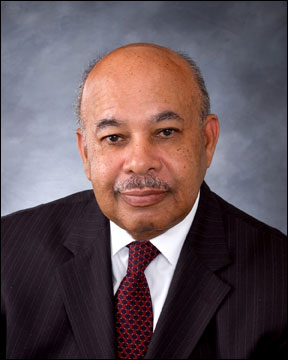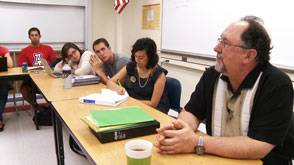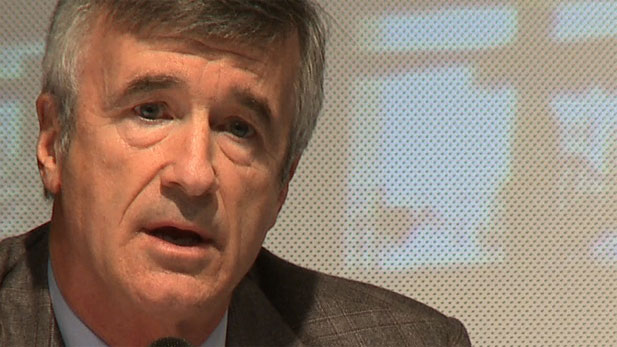Prop 107 seeks to ban preferential treatment --Some say wording by out-of-state coalition is deceptive
This year’s general election, set for November 2nd, includes Proposition 107, entitled the Arizona Civil Rights Initiative. A California-based group known as the American Civil Rights Coalition is leading the push for Prop 107. Ward Connerly is the president of the organization and he’s led efforts in several states to ban affirmative action. “I oppose preferential treatment of anybody,” Connerly said in a recent interview.
Ward Connerly is president of the American Civil Rights Coalition in Sacramento, California
“To compensate for our history of discrimination, many public agencies in Arizona have implemented programs that confer preferences in contracting and employment on the basis of race and ethnic background. We all know that such programs are wrong, but we have tolerated these practices knowing that the time would come when they would have to be brought to an end.”
Lea Marquez Peterson is the president and CEO of The Tucson Hispanic Chamber of Commerce. She says this isn’t the first time out-of-state interests have attempted to get the initiative on the ballot. “The problem with this initiative is that it’s called the civil rights initiative,” she says, and that’s a potentially deceptive label and a concern for the Hispanic Chamber members. “We were surprised to see it pop up again,” she says. “We’re very concerned because it’s not an even playing field yet.”
Dr. Jeff Milem leads a class of graduate students in the College of Education
Dr. Jeff Milem is the associate dean of the College of Education, and the Ernest W. McFarland Distinguished Professor in Leadership for Education Policy and Reform. He says that, if passed, the proposition would amend the Arizona Constitution and ban preferential treatment for, or discrimination against, any individual or group on the basis of race, gender, color, ethnicity or national origin in public employment, education or contracting.
He feels this would disrupt efforts by the UofA to create a positive learning environment. It also goes against national policies designed to increase diversity. “Racially diverse learning environments provide more opportunities for teaching and learning than do racially homogeneous learning environments,” he states. “So it becomes important for us, as educational practitioners, as teachers, as policy makers, to be able to take account of race in some way in the types of decisions that we make.” Milem says this is essential in the quest to create the best learning environments for students.
The goal of providing strong and healthy learning environments, and concern over what Prop 107 would do to these efforts, has galvanized the University community.
UA President Robert Shelton has led efforts to educate the public about the potential impact of such a constitutional amendment on the University’s efforts to increase diversity, and he recently spoke at a panel discussion on Prop 107. “We will not turn our backs on what we know to be fundamentally true,” he said. “To remain a world-class public research university we need the talent, we need the inspiration, that come from a diverse faculty, staff, and student body.”
Ward Connerly’s efforts in other states have had mixed results--defeated in some and approved in others. For everyone concerned about the issue behind this constitutional amendment, from educators to business leaders, it’s important to understand the language and meaning of proposition 107. Jeff Milem says that the consequences for education will be severe, and people need to educate themselves about the issue. Lea Marquez Peterson says that the worst case scenario would be for someone to vote yes because they see “Civil Rights” on the ballot.





By submitting your comments, you hereby give AZPM the right to post your comments and potentially use them in any other form of media operated by this institution.